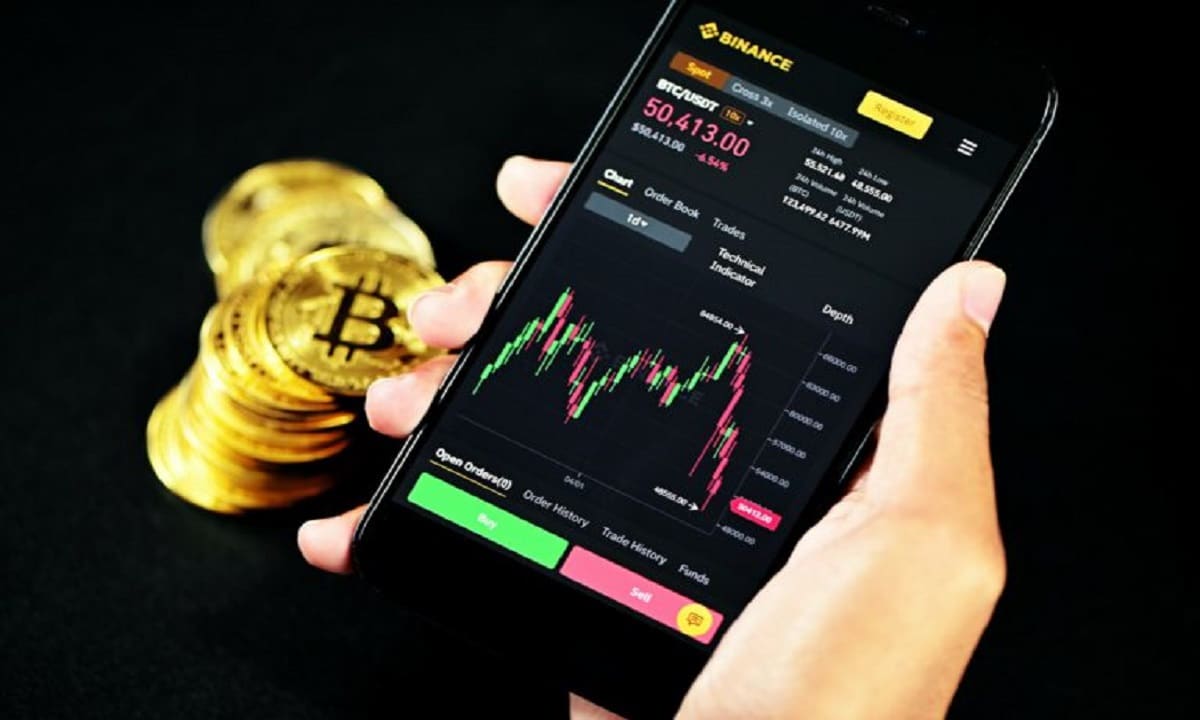New rules that are meant to make Hong Kong even more of a digital asset hub could soon make it possible for small investors to buy famous cryptocurrencies like bitcoin at exchanges that are licensed by the government.
In recent months, there have been a number of high-profile failures in the crypto markets, such as the spectacular fall of trade platform FTX and crypto-friendly US banks Signature and Silvergate. The crypto markets have yet to recover from these failures.
But the so-called “crypto winter” hasn’t stopped Hong Kong from accepting the sector. This change of heart started in October 2017 and ended with new rules for crypto exchanges starting June 1.
Officials also hope that the change will help the city’s economy, which is still struggling because of the pandemic, social unrest, and the effect of a Beijing-imposed national security law on business trust.
Experts say it will make Hong Kong an even more important place for mainland Chinese buyers who want to trade crypto, which is illegal in China.
Regulators want to attract businesses with good business conditions, but they also need to protect investors, which is an area that is well-developed in traditional finance but not as much in the virtual-asset space.
Giuliano Castellano, a law professor at the University of Hong Kong, told AFP that it is clear that these goods are becoming more and more important to our economy.
Since 2019, the city has had a voluntary licensing system for crypto trading platforms. However, licensees could only work with professional clients who had at least HK$8 million ($1 million) in their accounts.
Without licensed local choices, Hong Kong’s retail crypto traders can only use websites like Binance and Coinbase, which are based outside of Hong Kong, or a number of physical stores that buy and sell tokens for cash.
The limit on the number of clients didn’t go over well with Hong Kong’s crypto businesses, so it was taken out of the new rules.
“The genie’s out of the bottle,” Kristi Swartz, a fintech lawyer at DLA Piper, said about private crypto trading.
“They need to face the truth… If it’s there already, let’s try to control it.”
Despite its crashes, cryptocurrency still has a market capitalization of more than $1 trillion globally, and Hong Kong is outpacing regulators elsewhere to establish the laws.
The first comprehensive rules for the sector were agreed by the European Union earlier this month, and soon after, the international securities watchdog IOSCO put up its proposals.
China has maintained a strong ban since 2021, in contrast to shifting perspectives on cryptocurrencies around the world.
Leo Weese, co-founder of the Bitcoin Association of Hong Kong, asserts that Hong Kong, a Chinese city with financial regulations distinct from those on the mainland, has a specific allure for Chinese cryptocurrency entrepreneurs and investors.
“There is a huge appetite from… (Chinese) cryptocurrency ventures to have any kind of legal presence on Chinese soil,” he said, adding that businesses see it as a door to the lucrative mainland market.
If they have a bank account and address in the city, mainland Chinese investors are frequently recognized as Hong Kong clients in both conventional finance and cryptocurrency.
The ability to persuade many of your mainland clients that it is secure for them to connect with you through their Hong Kong bank account will be possible after you have a Hong Kong license, according to Weese, who spoke to AFP.
Important cryptocurrency exchanges like Huobi and OKX, which were both established in China, have declared their intention to apply for a license in Hong Kong.
On paper, Beijing’s anti-crypto stance has not changed, but senior economic officials have openly backed Hong Kong’s goals.
“You can tell that China is saying that it’s okay if something happens in Hong Kong, which has a population of around 7 or 8 million. We may employ it as our petri dish,” Swartz told AFP.
Investor protection
The retail-friendly regulations, which will take effect in June and be required in contrast to the current system, will eventually require licenses from all exchanges operating in Hong Kong.
Regulators in Hong Kong expressed their want to issue the first licenses soon.
A year-long transition period is allowed by authorities, according to some crypto firms, so the transfer is not anticipated to impact ongoing business operations.
The two current licensees, HashKey and OSL, informed AFP that they will expand their retail presence and apply for new licenses.
“There is a very big need in the market to have platforms that are easily accessible… but are also properly managed and properly regulated,” said Michel Lee, executive president of HashKey Group.
“This new regime adds a great deal more clarity as to what you’re getting and what the safety standard you will be provided with.”
Regulators in Hong Kong stated that the new rules are intended to “provide robust investor protection and manage key risks” in light of the recent memories of FTX’s collapse.
One protection is that exchanges are only permitted to offer “large-cap virtual assets” to retail investors, like bitcoin and ethereum, and are required to establish internal committees to determine which cryptocurrencies to provide.
Before they can trade, retail clients must also pass knowledge exams and risk assessments, though it’s still not clear just how much information is required.
For the time being, retail investors are not permitted to purchase products like stablecoins and crypto derivatives.
According to Castellano, a legal expert, “the new regulations are intended to protect investors better.”
The prudent course is to proceed cautiously.








































